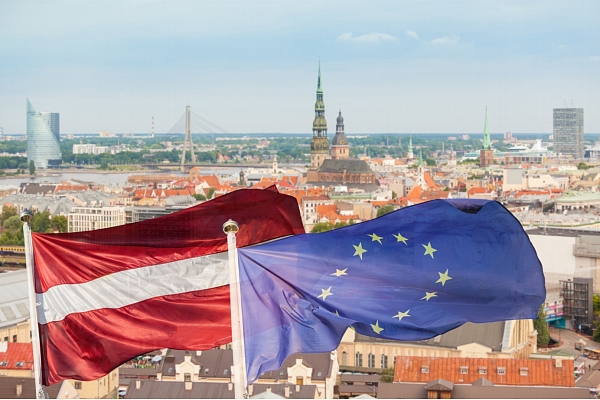Latvian tax system expecting changes
The Latvian tax system has not generally changed, but from time to time the government decides on changes in some taxes when drafting next year’s budget. In order to end this practice, the government has resolved to prepare and introduce a new tax policy – transfer the tax burden from laborforce to capital. In line with the most optimistic scenario, the new tax policy might come into force in 2018.
Latvian tax system in brief
* At the end of 2015 tax revenues against GDP were 29.5%
* Latvian tax system keeps changing
* There are 15 taxes and 113 duties in force in Latvia
* Since January 1, 2011, tax and informative declarations can be submitted to the State Revenue Service only using the Electronic Declaration System
* In 2017 the law on microenterprise tax was changed – the microenterprise tax rate is 15% for enterprises generating EUR 7,000-100,000 in annual turnover and 12% for microenterprises whose annual turnover does not exceed EUR 7,000. From 2018 the microenterprise tax rate will be 15%.
* In 2017 the Law on Support for Startup Operations came into force, providing for a fixed payment which is the final monthly payment of mandatory state social insurance contributions made by the start-up company for the employee into the state social insurance special budget. It is a payment at the amount of two minimum mandatory contributions or EUR 252.26 in 2016 if the wage does not exceed EUR 4,050 a month. If the wage is higher, then in addition a solidarity tax is paid.
Latvian tax system awaiting radical changes
* The greatest changes in Latvia’s tax system occurred during the crisis years and in 2011, when several taxes were changed significantly for budget consolidation purposes, however, when drafting 2016 budget, progressivity of taxes was considered, and a solidarity tax has been introduced for people with higher level of income. In spring the government will discuss radical changes in the tax policy, transferring the tax burden from laborforce to capital.
* The overall tax burden in Latvia is among the lowest ones in the EU and is slightly below 30% of GDP (the share of collected taxes against the gross domestic product).
* From January 1, 2016, a solidarity tax has been introduced in Latvia in order to reduce regressivity of taxes for employees and self-employed people with higher level of income. The is charged on salaries of individuals that in a year exceed the maximum size of the compulsory state social insurance contributions – in 2016 it was EUR 48,600 a year or EUR 4,050 a month on average.
* Latvia has had a significant "shadow economy" in the post-crisis years. According to a study carried out by the Stockholm School of Economics in Riga, Latvia’s "shadow economy" in 2015 reached 21.3% of the gross domestic product (GDP), dropping just by 2.2 percentage points from 2014.
Main taxes and standard tax rates:
• Social tax (mandatory state social insurance contributions): 34.09% (employer pays 23.59% and employee 10.5%)
• Personal income tax: 23%
• Corporate income tax: 15%
• Micro-enterprise tax 12% or 15%, depending on turnover
• Tax on income from capital: 15%
• Value added tax: 21% (reduced rate 12%)
• Excise tax (tobacco, alcoholic beverages, natural gas, oil products, non-alcoholic beverages, coffee)
• Property tax: 0.2%-3%
Labor taxes
• Mandatory state social insurance contributions: 10.5% tax rate for employees and 23.59% for employers.
• From January 1, 2015, personal income tax rate is 23%. The monthly non-taxable minimum in 2017 is EUR 60. The maximum rate non-taxable minimum is EUR 1,380 a year or EUR 115 a month. The annual income on which the maximum annual non-taxable minimum is applied is EUR 4,800 a year or EUR 400 a month. The annual income on which the lower non-taxable minimum rate is applied is EUR 13,200 a year or EUR 1,100 a month.
* Entrepreneur risk tax fee of EUR 0.36 per employee also falls into the labor tax category.
Corporate income tax
• Corporate tax in Latvia is one of the lowest in the EU – 15%, which is one of the cornerstones in attracting more investments to Latvia
• As of 2011, corporate income tax breaks for major investment projects were renewed. From January 1, 2014, tax allowances for feasible investment projects are valid until 2020, whereas the minimum sum of investments has been increased to EUR 10 million. Since 2011, corporate income tax allowances for investment projects have been granted to companies, such as: Dobeles Dzirnavnieks, Baltic Crystal, Tērvetes AL, AKG Thermotechnik Lettland, Olainfarm, Latvijas Mobilais Telefons, Stora Enso Latvija, Latvijas Finieris, Bite Latvija, Cross Timber Systems, Livonia Print, Rīgas Piena Kombināts, Cotton Club Liepāja, Valmieras Stikla Šķiedra, etc.
* From 2017, when preparing the annual financial report about the taxation period that starts from 2017 and the future taxation periods, loss of the previous taxation periods may be covered at the amount that does not exceed 75% of the respective taxation period and taxable income that has been calculated after correcting the profit figure.
Tax for small companies
In 2011 Latvia introduced a 9% tax for companies whose annual turnover does not exceed EUR 100,000. Still, during the 2017 budget drafting process there was a proposal to liquidate the microenterprise tax. Following objections of tax payers, the government decided that starting from 2017 the microenterprise tax rate will be 15% for enterprises generating EUR 7,000-100,000 in annual turnover and 12% for microenterprises whose annual turnover does not exceed EUR 7,000. It is expected that the new tax strategy will introduce new changes in the microenterprise tax.
Value added tax
• Value added tax (VAT) is a consumption tax that is included in the price of a given good or service, and it is paid by the final consumer of the good or service. The standard VAT rate in Latvia is 21%.
• Latvia also has a reduced VAT rate of 12%. The reduced VAT rate applies to certain medication, medical equipment, baby food, textbooks and literary works, newspapers and magazines, certain wood fuels and heating.
• From April 1, 2016, reverse VAT payment applies to supplies of mobile phones, laptop computers and integral system devices. Starting from January 1, 2017, a temporary reverse VAT payment is also applied to raw precious metals, their alloys, and precious clad metal supplies.
Property tax
• As of 2013, local governments have been delegated the right to issue pertinent rules to set the tax rate at 0.2% to 3% of the property’s cadastral value. The tax rate may exceed 1.5% only if the given property is not run and managed according to the regulations
Excise tax
• In Latvia, excise tax applies to alcoholic beverages, tobacco products, oil products, natural gas, non-alcoholic beverages and coffee. From January 1, 2017, excise tax is raised on cigars and cigarillos, other smoking tobacco, and other tobacco products. Starting from March 1, 2017, excise tax rate will be raised on alcoholic beverages. Starting from July 1, 2017, the rights to purchase fuel at reduced excise tax rate for land areas for growing corn for production of biogas will be lifted. Starting from July 1, 2017, excise tax rate on cigarettes will be raised. Starting from January 1, 2017, the allowed loss of alcoholic beverages during different stages of productions will be revised.
Natural resources tax
Natural resources tax applies to companies and natural persons who in the territory of Latvia (or Continental Shelf) extract taxable natural resources, emit taxable polluting substances into the environment, produce or sell in Latvia such goods/products, or goods/products in packaging, that are damaging to the environment.
Special economic zones (SEZ)
In Latvia, there are special economic zones in Rēzekne and Liepāja; the status also applies to the freeports of Rīga and Ventspils that have special taxation stimulating economic activity, which pertains to corporate and property taxes.
Main tax rates in Latvia
Tax Rate Taxation period
Corporate income tax 15% of applicable income 12 months that may not coincide with calendar year
Personal income tax 23%; 10% on income that is not from an increase of capital; 15% on income from an increase of capital One calendar month or year
Mandatory state social insurance contributions Mandatory contribution is 34.09% (23.59% paid by employer; 10,5% by employee) One calendar month
Value added tax 21%; reduced VAT rate is 12% One calendar month
Property tax 1.5% of property’s cadastral value One calendar year
Electricity tax EUR 1.01 EUR per megawatt hour One calendar month
Microenterprise tax 12%-15% One calendar year
Source: Finance Ministry, State Revenue Service





